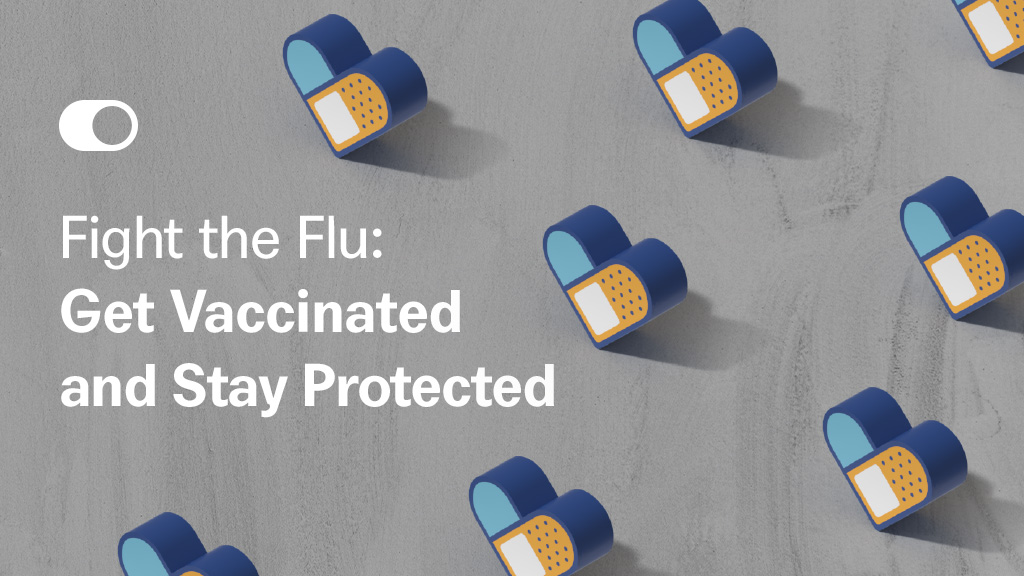
Fight the Flu: Get Vaccinated and Stay Protected
The average flu season leaves millions of people sick with fever, chills, aches, cough, and other uncomfortable symptoms. Luckily, there’s one simple thing you can do to reduce your risk and decrease the severity of symptoms and risk of complications: get a flu vaccine. They’re available every flu season at pharmacies, doctor’s offices, and sometimes even through work.
Flu Shot Benefits
There are lots of benefits to consider when taking flu shots. Getting a flu shot each year gives you the best protection against the current strain of the virus. The shots are updated annually to make sure they protect against the most common strains of the virus that are going around each season to provide the best defense each year. The flu shot helps prevent you from getting sick and spreading the flu to others. And if you do catch it, it will keep the symptoms milder and more manageable than they would be if you don’t get vaccinated. Be sure to tell your Primary Care provider once you get your shot so they can keep your flu immunization record up to date.
Flu Vaccination FAQs
Many people have questions about the flu shot. Here are some of the most common ones:
What is the flu and how is it spread?
How can I protect myself and others from the flu?
Can I get the influenza virus from the flu shot?
How effective is the flu shot?
Who’s at higher risk?
If you have more questions about the flu virus or flu vaccine, connect with your provider.
Flu Prevention Tips
In addition to the vaccine, there are a few things you can do to keep yourself and others healthy this flu season.
Spread love, not germs:
Focus on wellness:
Keep Yourself and Your Loved Ones Healthy
The bottom line is that getting the flu is no fun for anybody. Flu shots are the best way to avoid getting sick or transmitting the virus; plus, they help reduce how bad symptoms are if you do get sick. So help spread flu vaccination awareness to your loved ones, coworkers, and community. The more people who get a flu shot, the more protected and healthier we all are. Schedule your shot today to stay safe this flu season.
About the Reviewers

Carmel has had the privilege of practicing medicine in a variety of settings, both inpatient and outpatient, including rural settings. She strongly believes in a team approach and providing comprehensive care with a focus on prevention and wellness.

Yvonne is a board-certified family physician. She has been practicing medicine for over 20 years, serving a broad array of patients. A strong advocate and promoter of the patient-centered medical home, she now practices full-time for Crossover Health on their National Virtual Care team.